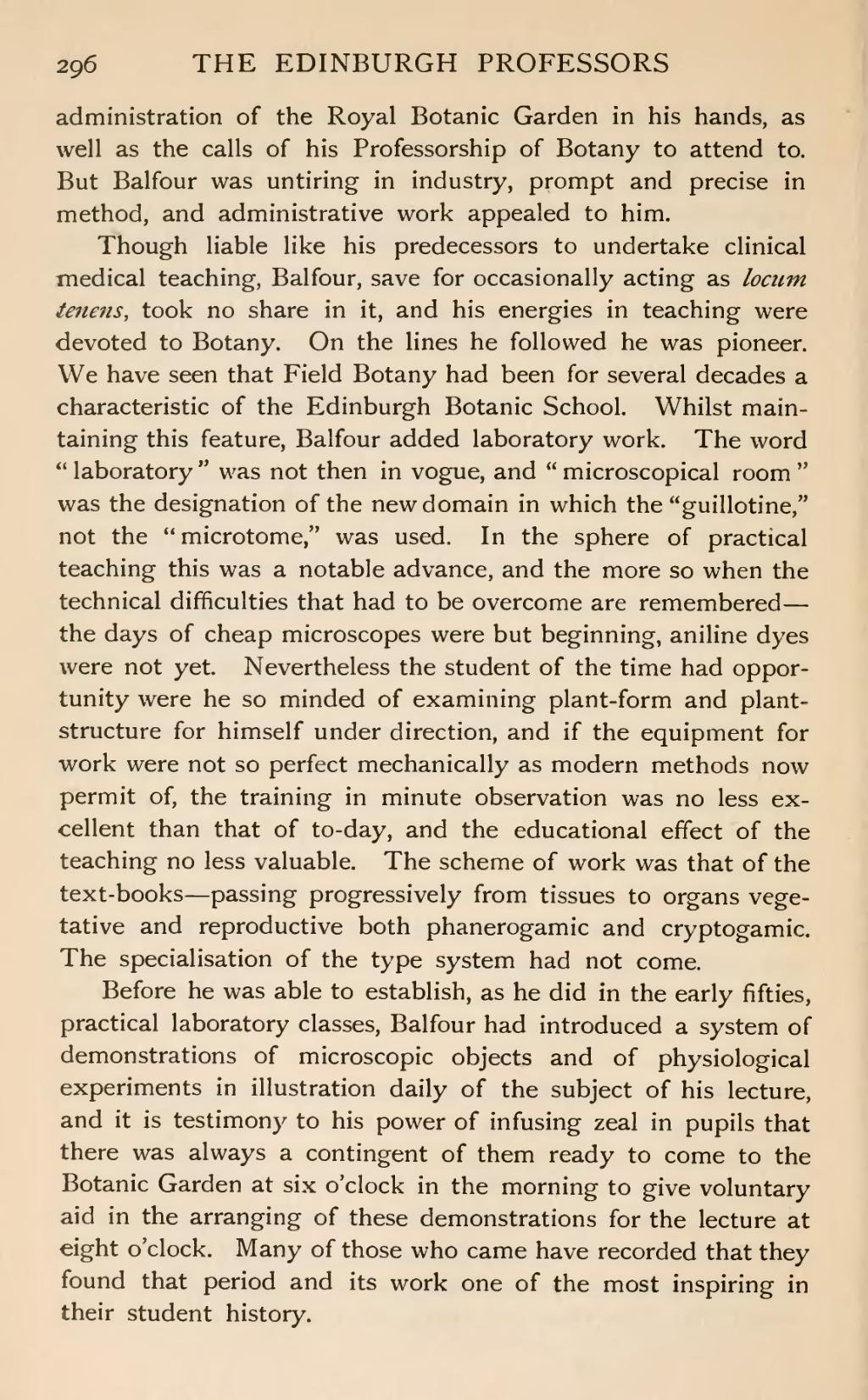administration of the Royal Botanic Garden in his hands, as well as the calls of his Professorship of Botany to attend to. But Balfour was untiring in industry, prompt and precise in method, and administrative work appealed to him.
Though liable like his predecessors to undertake clinical medical teaching, Balfour, save for occasionally acting as locum tenens, took no share in it, and his energies in teaching were devoted to Botany. On the lines he followed he was pioneer. We have seen that Field Botany had been for several decades a characteristic of the Edinburgh Botanic School. Whilst maintaining this feature, Balfour added laboratory work. The word "laboratory" was not then in vogue, and "microscopical room" was the designation of the new domain in which the "guillotine," not the "microtome," was used. In the sphere of practical teaching this was a notable advance, and the more so when the technical difficulties that had to be overcome are remembered—the days of cheap microscopes were but beginning, aniline dyes were not yet. Nevertheless the student of the time had opportunity were he so minded of examining plant-form and plant-structure for himself under direction, and if the equipment for work were not so perfect mechanically as modern methods now permit of, the training in minute observation was no less excellent than that of to-day, and the educational effect of the teaching no less valuable. The scheme of work was that of the text-books—passing progressively from tissues to organs vegetative and reproductive both phanerogamic and cryptogamic. The specialisation of the type system had not come.
Before he was able to establish, as he did in the early fifties, practical laboratory classes, Balfour had introduced a system of demonstrations of microscopic objects and of physiological experiments in illustration daily of the subject of his lecture, and it is testimony to his power of infusing zeal in pupils that there was always a contingent of them ready to come to the Botanic Garden at six o'clock in the morning to give voluntary aid in the arranging of these demonstrations for the lecture at eight o'clock. Many of those who came have recorded that they found that period and its work one of the most inspiring in their student history.
